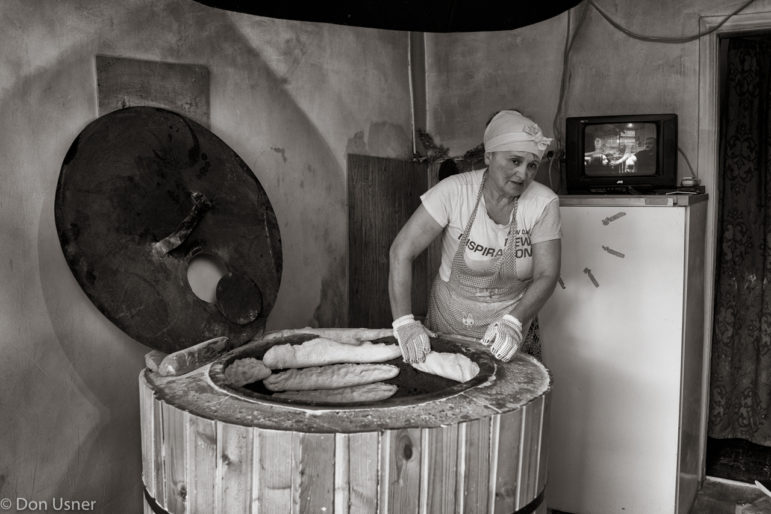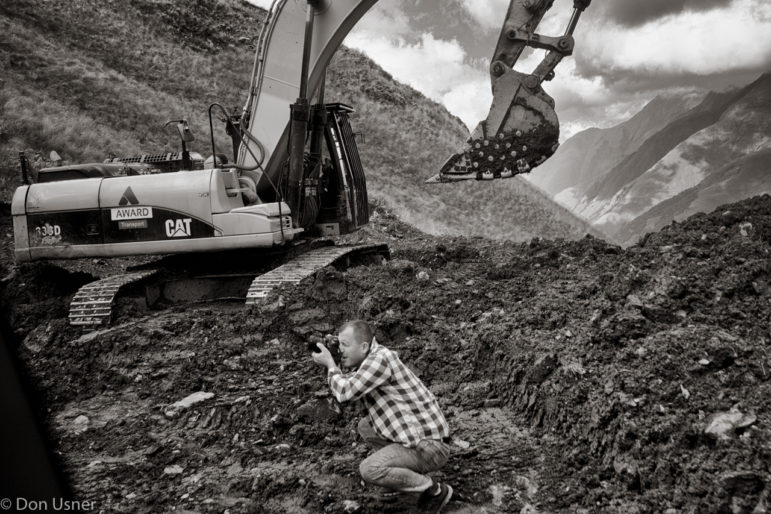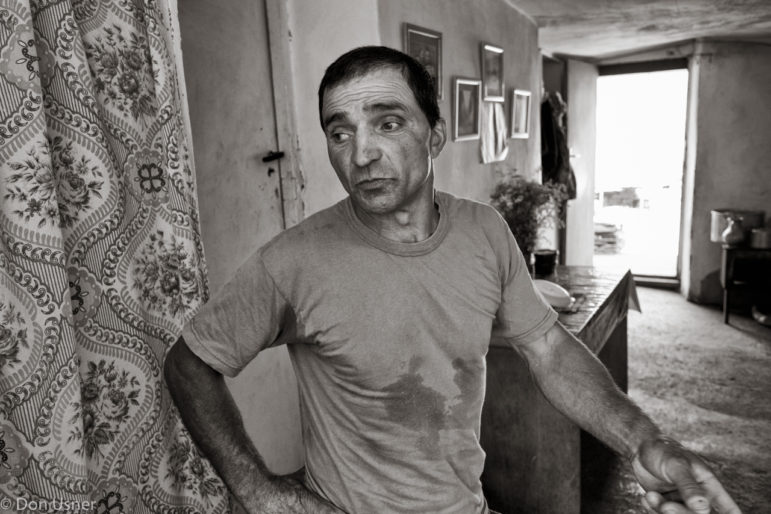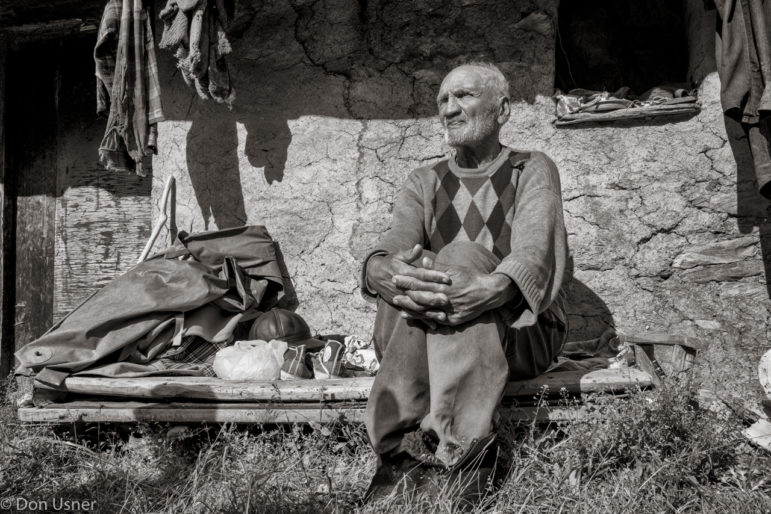SPJ Rio Grande is partnering with IREX, a global development and education organization, to connect journalists in New Mexico and the country of Georgia. The aim is for journalists from both countries to help each other learn and prosper in their work. The program is funded by the Public Affairs Section of the U.S. Embassy in Georgia.
We’re happy to announce that Sara Solovitch and Don Usner of Searchlight New Mexico were the first SPJ Rio Grande journalists to travel to Georgia, in July 2019. In late August, several New Mexican news outlets signed on to host journalists from the Georgian Information Centers Network (ICN). SPJ has helped IREX with a lot of behind-the-scenes planning to find and create matches that work for individual journalists’ and news organizations’ needs.
This is an ongoing exchange — does your newsroom want to participate in the future? Please contact SPJ Rio Grande (spjriogrande@gmail.com) with your questions and ideas.
Read below for more about what’s happened in the exchange so far, including photos from Don Usner.
A big, special thanks to all the New Mexico journalism outlets and organizations that have offered their time and expertise for this enriching exchange:
- Searchlight New Mexico
- Santa Fe Reporter
- Santa Fe Radio Café
- Santa Fe New Mexican
- Outside Magazine
- Koahnic Broadcast Corporation / Native America Calling
- Albuquerque Business First
- The Grant Plant
- KOAT Action 7 News
- KNME – New Mexico PBS
- Rio Grande Sun
- The Taos News
- Don Usner
- Redcoates Studios
- Mike Marcotte / University of New Mexico Department of Communication & Journalism
Georgia trip notes
By Don Usner / Searchlight New Mexico

I didn’t know what to expect from the journey to Georgia. It is so “off the map” for me, as it is, I think, for most Americans. But I was glad to be going on this trip as a junket for journalism, because I hoped it would take me to places and people that I wouldn’t find with a tourist map and handbook. I wasn’t disappointed.

Don Usner / Searchlight New Mexico 
Don Usner / Searchlight New Mexico
Our hosts from IREX aimed to show us the Georgia they love and are proud of while also providing us with a meaningful interaction with Georgian journalists. They took us to well-trodden sites where we joined throngs of other visitors, mostly from Europe and Russia, to get a taste of the face of Georgia that is broadcast to visitors. But then our IREX hosts joined us on a trip to remote villages in the Caucasus mountains where the tourist count dropped to only a few hardy travelers willing to brave a long drive over a precarious road. And here we went with staff from ICN, a news organization whose audience and perspective is dramatically different from that represented in glossy brochures. This was the best part of our experience.
Based in the village of Shatili, we accompanied ICN on three video shoots in surrounding villages, one of which is not accessible by road and is inhabited by just one resident, an old man (a retired boxer) who stubbornly hangs on, living without running water, an hour’s walk beyond the end of the road. Only a solar panel and satellite dish keep him in touch with the world through long winter months. The director of ICN, Gela Mtivlishvili, and his crew conducted video interviews, focusing on the theme of the remoteness and inaccessibility of the mountain villages and the challenges and opportunities this isolation brings to the residents.
We were only in the mountains a couple of days but learned so much about the place and about the practice of journalism in that country. Most striking was ICN’s willingness to not only report stories, but to advocate for the people it is reporting on. With the old man in Ardoti, this had meant working with public officials and private companies to get him his satellite dish and tv and, after our visit, arranging for a helicopter evacuation to bring him to much needed medical care in the city.

Don Usner / Searchlight New Mexico 
Don Usner / Searchlight New Mexico
In the stories we saw him working on, Gela unabashedly uses ICN’s resources and reach to promote positive change in the villages. He tells compelling human stories, using almost entirely video distributed widely in Georgia through the internet, tv and radio, to bring to light the conditions for people in rural regions. As we later toured through ICN’s impressive office spaces and studios (when we returned from the mountains), we learned that his organization relies heavily on support from corporate sponsors, the U.S. State Department and USAID, and, I wondered if those sponsors held some sway over the content of ICN’s reporting. It doesn’t seem to, at least overtly.

Don Usner / Searchlight New Mexico 
Don Usner / Searchlight New Mexico
One of the major issues in Georgia now is a Russian occupation that has gone on for years and now assures Russian military control over 20% of Georgia’s land area. There is much protest in Georgia expressing resentment of this occupation. And yet this conflict didn’t seem to preoccupy ICN’s coverage as much I would have thought. Could there be an unwillingness to ruffle the waters? I’m not sure, but Gela’s adulation of the notion of a free and independent press came to the fore as he toasted us at a farewell dinner he and his mother prepared for us at his house on our last day in the country. His rhetoric fairly soared as he praised the “freedom” in the U.S. and his admiration for the ideals that supposedly guide our country’s treatment of the media. Was he expressing a longing for more of this in Georgia, I wondered? I’m not sure but the question will be in my mind when we host Georgians from IREX and ICN later this month.

Don Usner / Searchlight New Mexico 
Don Usner / Searchlight New Mexico
By Sara Solovitch / Searchlight New Mexico
I just got back from a week in the Republic of Georgia, crisscrossing gorges along the southern border of Chechnya and holding my breath in a van that overlooked thousand-foot plunges that lay just below my window.
Photographer Don Usner and I had come on a journalism exchange program sponsored by IREX, a global education program funded in part by the U.S. State Department. We were there to meet and work with Network of Information Centers, an online news group also funded by US dollars, probably as a bulwark against Russian influence.
ICN was founded in 2010 by Gela Mivlishvili. a onetime lawyer now equal parts journalist and public crusader. At 36, Gela has built a corps of citizen journalists in the mountainous regions, training young people in Reporting 101: finding stories, vetting sources, conducting interviews, fact-checking. Interestingly, he doesn’t appear burdened by any of the strict boundaries that American journalists consider part and parcel of their daily practice. I watched, for instance, as he negotiated the transfer of a cell phone tower with a government official, arranging for it to be delivered and installed in a remote region near the Ingusheti border.
In most ways, reporting in Georgia is a whole different ballgame from American journalism. One afternoon, we followed the crew as it hiked through a meadow of high grass, up a mountain trail and over four sagging, handmade bridges that crossed a fast-moving river until we arrived at the stone hut of an ailing 83-year-old man named Jamruli. While our driver cut away at the tall grass outside Jamruli’s door with a scythe, Gela rummaged through a bag of medications. Was the old man actually taking anything that the doctors had prescribed? Upon his return to Tbilisi, Gela announced, he would arrange for a helicopter to come and get and bring him to a hospital.